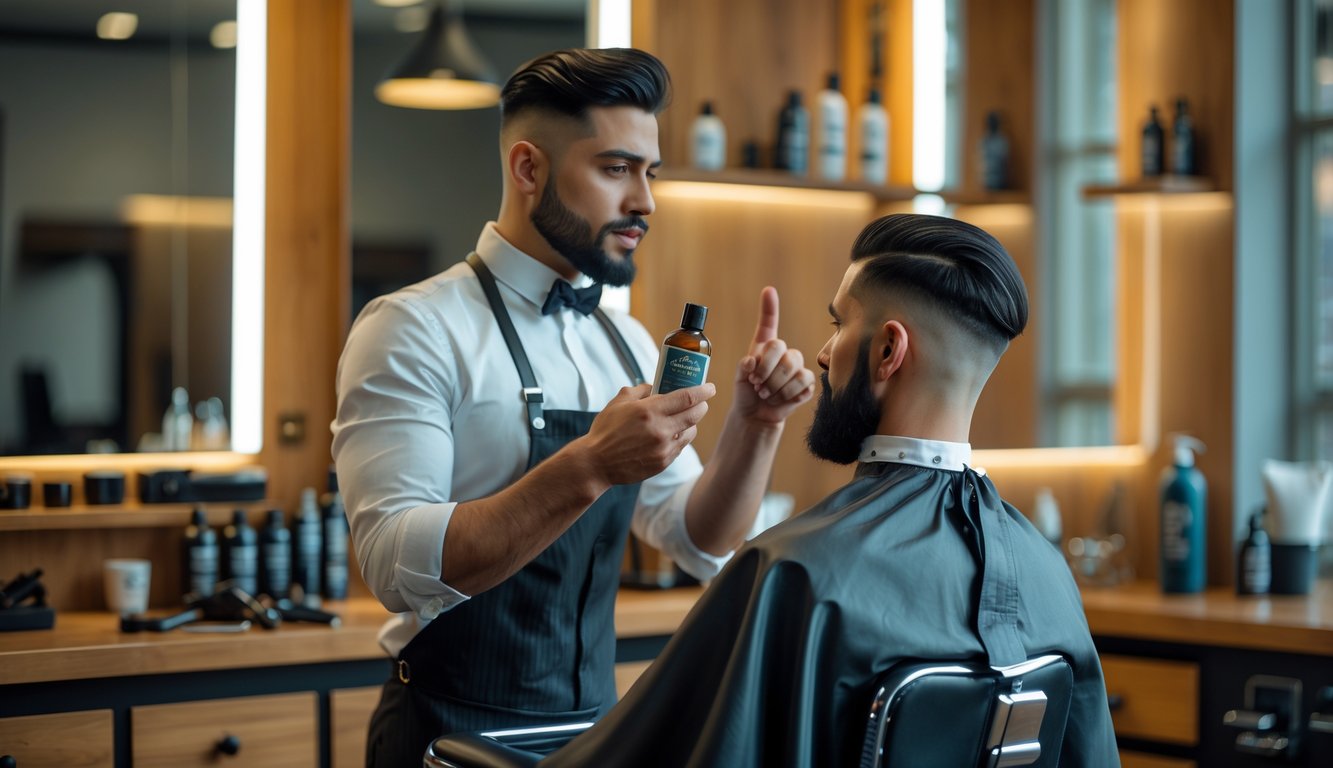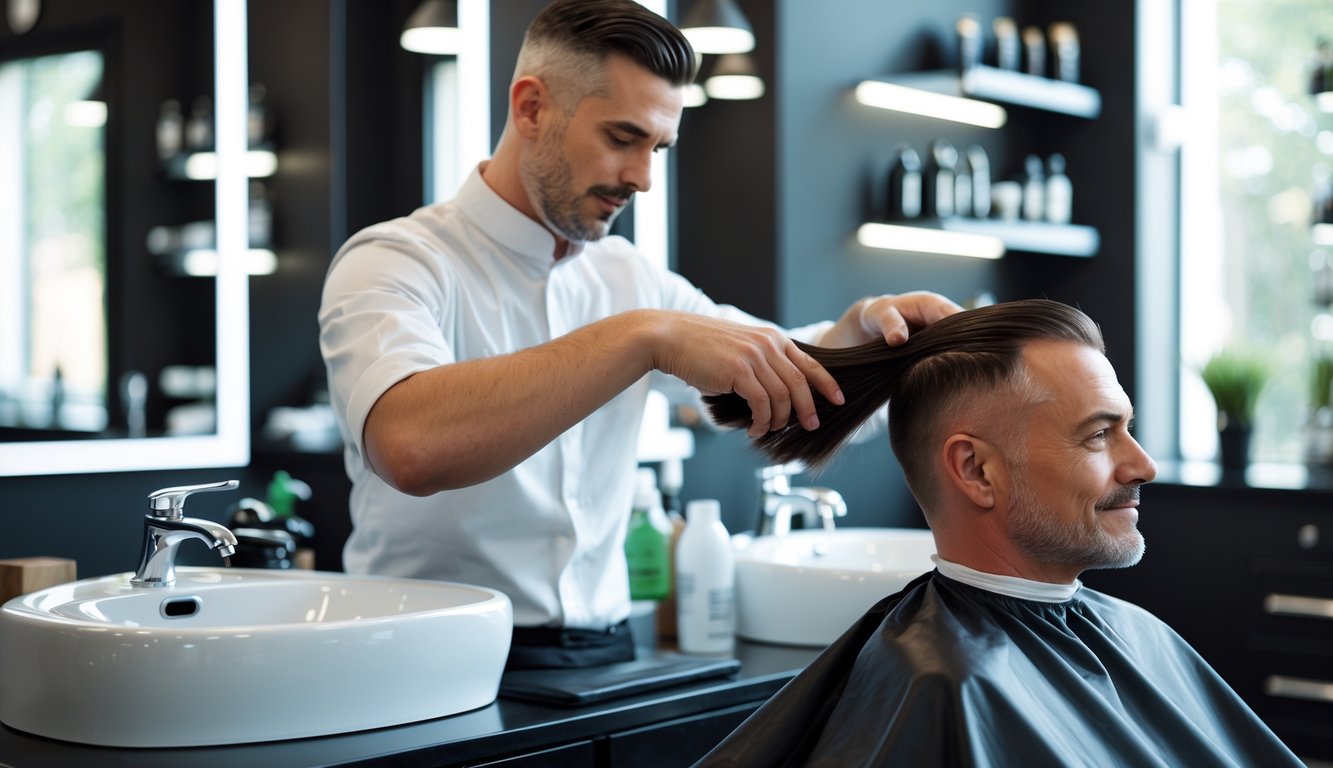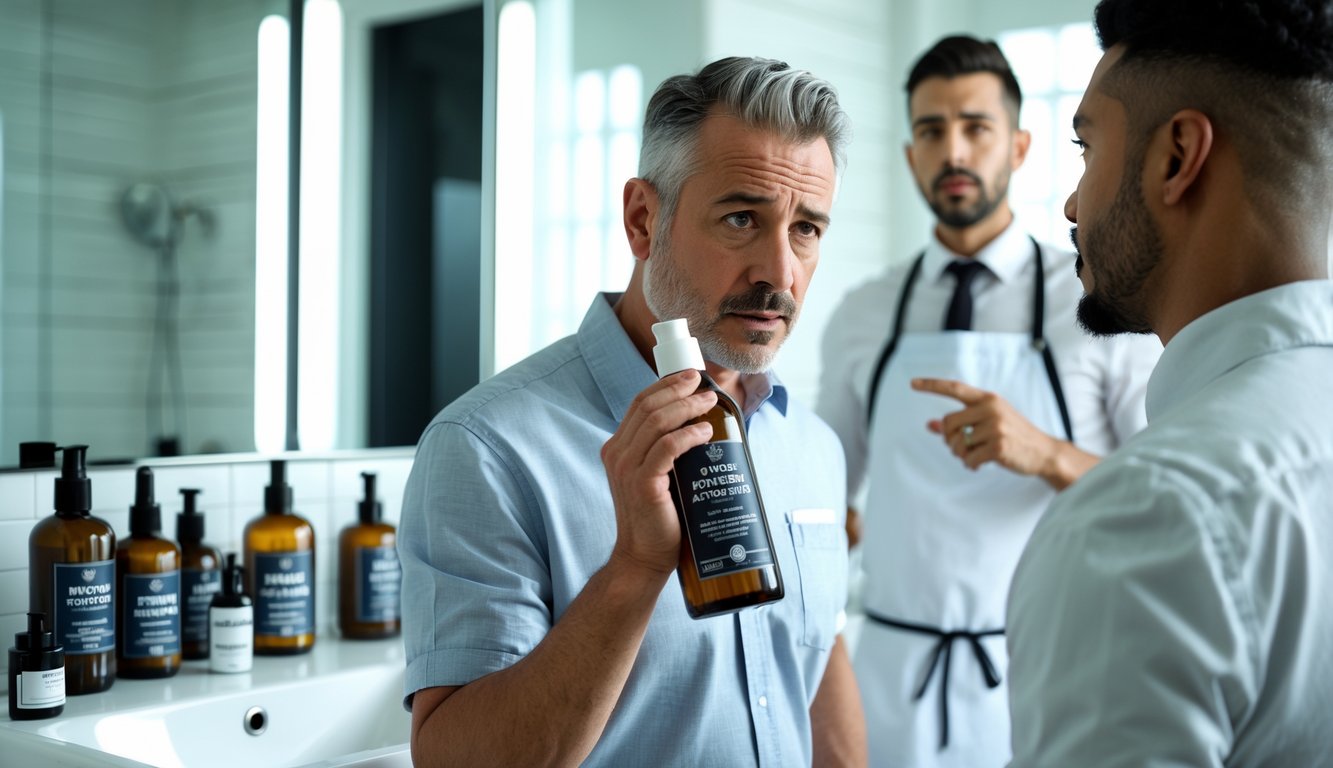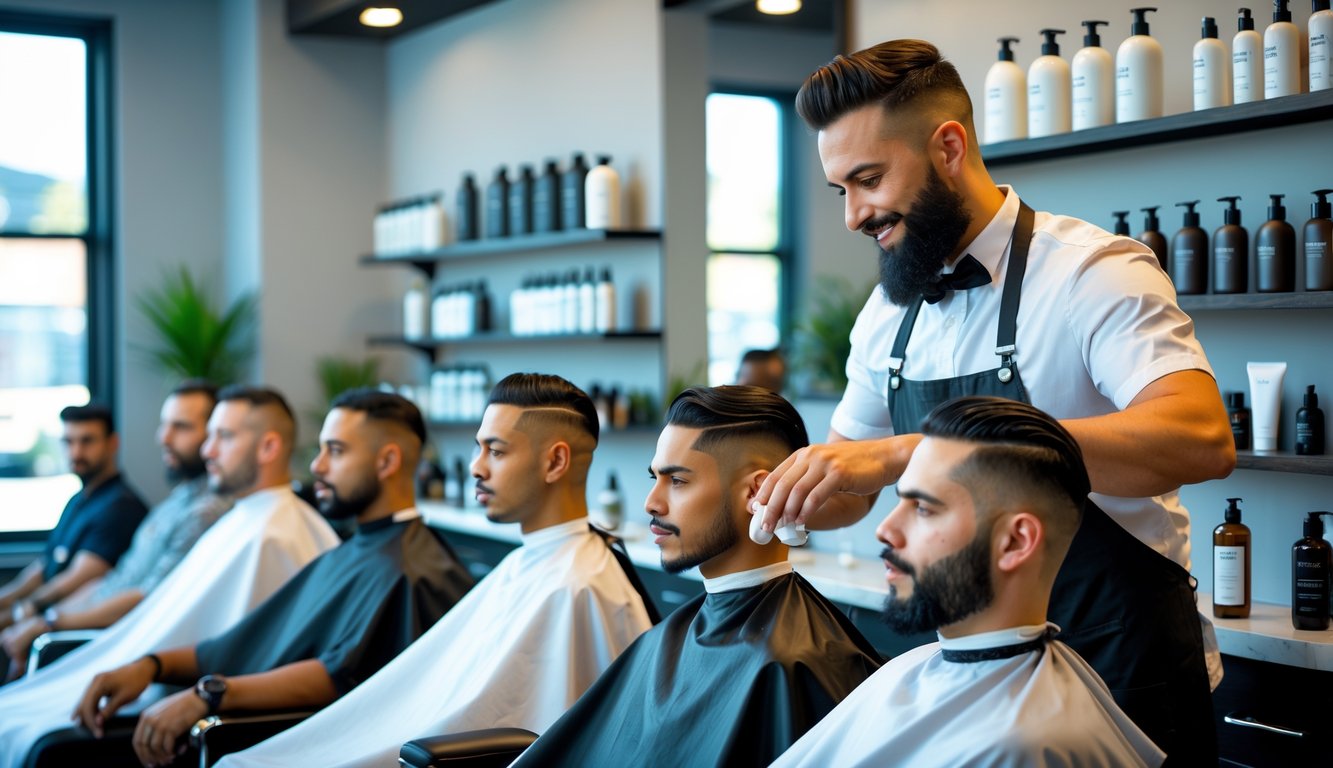
Real Stories From Barbers

So here’s what gets me: I walk into the shop last week, and three guys in a row start complaining about the “miracle” shampoo TikTok told them to buy. Who’s got the patience for decoding ingredient lists? But every so-called pro brand or viral bottle has its little cult and its disaster stories. Everybody’s wallet gets lighter, some more than others.
Barbers’ Experiences With Fraudulent Products
Midway through a fade, some dude asks, “Ever tried that $30 coal shampoo?” I almost snorted, but then I remembered I’d actually seen it—twice, half-empty, both times the guy’s scalp was flaking like croissant crumbs. These “barber-recommended” bottles show up at my chair all the time, carried in by new clients who swear this Instagram ad is finally the real deal. It’s never the real deal.
You know what’s wild? Knockoff bottles look legit, but barbers can always tell by the feel or the smell. Clients? Never notice. Last year, some sketchy distributor dumped a truckload of “Moroccanoil” at local shops. Two weeks later, bam—brand sends out a recall, every barcode flagged. All that money? Poof. Best review I heard: “Smells like sunscreen and pennies.” Not exactly what you want on your head.
Scams keep getting sneakier. Now they just say “proprietary blend,” which is code for “we watered this down.” Real barbers? We stick to legit suppliers, check batch numbers, get receipts. I do it every day, but I still get burned sometimes.
Lessons Customers Wish They Knew
I can’t count how many hair crises would’ve been avoided if guys realized “barber shop formula” at the drugstore is usually just marketing. “Enriched with argan oil?” Yeah, I’ve seen more itchy scalps from those than from that mousse everyone used in the ‘90s.
Brian, one of my regulars, shelled out $60 for some “premium” men’s shampoo. Weeks later, his hair’s brittle, he’s mad, and he brings me the bottle. No safety seal. He missed it. Happens all the time. My job is basically: spot the fake, scan the fine print, and try not to go cross-eyed. Unlicensed brands never get real pharmacy approval. If my coworker gets confused, what’s the average guy supposed to do?
Here’s a tip nobody tells you: ask to see the wholesaler’s invoice for that “exclusive” in-shop shampoo. Half the time, it’s just generic stuff with a fancy sticker. But most guys trust a shiny shelf more than the person actually cutting their hair. Makes no sense.
Consumer Protection and Reporting Scams

What really drives me nuts about these men’s shampoo “miracles”? Most guys don’t even bother complaining. I mean, is there a secret handshake for getting a refund? First time I got burned by a “barber-formulated” bottle, my scalp flaked like a snowstorm and I just shrugged. Why isn’t there a giant red “REPORT FRAUD” button on every bottle?
How to File a Complaint
Honestly, who knows where to even send a complaint? BBB, FTC, your barber, or just rant on Twitter? Consumer Reports said complaints about bogus men’s hair stuff jumped 18% in three months, but the whole process is a maze. When I tried ReportFraud.ftc.gov, I spent five minutes just trying to find the UPC code on a bottle I’d already recycled. They want “evidence”—like anyone keeps receipts for shampoo.
If you’ve wasted cash on something labeled “all-natural” but loaded with weird chemicals, you could try the {BBB Complaint System}. My buddy calls it “the Yelp of broken promises.” Or use the FTC’s form, but, honestly, half the time you get a canned reply (if you get anything at all). My old roommate, the one who thought conditioner was a scam, actually mailed a letter. Like, with a stamp. No clue if anyone even read it. Paperwork’s a nightmare, but digital forms are slightly less painful. The FTC and Consumer Financial Protection Bureau both want digital anyway.
What Happens After You Report
Don’t expect alarms to blare when you file a complaint. No one in a lab coat comes running. When I complained about a cream that smelled like minty plastic, I got a generic “Thank you for your input.” Super helpful. The FTC says they collect all these reports to look for patterns, not to fix individual gripes. So, unless a bunch of people complain about the same “barber-approved” nonsense, nothing really happens. Maybe, if you’re lucky, the brand gets a warning or has to change their label.
My barber says the best you can hope for is a warning or a label update. He’s seen “clinically proven” claims vanish after enough BBB and FTC complaints. Refunds? Rare. Public shaming? More likely. Who even reads the BBB scam tracker? I do, apparently. It’s basically a catalog of every dumb trick in men’s grooming. Screenshot everything. Sometimes that’s all you’ve got.
What the Better Business Bureau Says

Everybody’s heard of the BBB, but actually reading their scam reports about men’s shampoo? I’d rather reorganize my sock drawer. Still, tons of guys don’t realize their “premium” shampoo is just a price hike, sketchy ingredients, or made-up certifications. Every week, there’s some new “all-natural” hair tonic going viral and the BBB lights up.
Latest Scam Reports
Type “shampoo” into the BBB Scam Tracker and brace yourself. It’s chaos—wild claims everywhere. Modern Mammals did a deep dive: most “shampoo science” is just marketing covering up cheap formulas. Like, the “biotin boost” bottle at the mall? Someone reported fake endorsements and never got the product. The site’s gone, another pops up. Rinse, repeat.
BBB’s last report? Supposedly 35% of people caught in these schemes lose money. Guys think they’re getting salon results, end up stuck in “free trial” auto-renewals no barber ever recommended. Shipping fees jump from $9.99 to $89.95 overnight, customer service ghosts you, and the BBB keeps racking up complaints.
How the BBB Helps Consumers
So, I actually called a BBB rep once (don’t ask). She said, “Always check if the business is legit before buying.” How? No clue, I still forget. Their Scam Tracker lets you search brands, but honestly, the best part is reading the angry complaints people leave. One tip: never trust those “celebrity barber” flash sales from pop-up ads.
BBB won’t refund your money, but they do flag repeat offenders and put out warnings if enough people complain. Weird thing? Some shampoo brands still have shiny “A” ratings even with a pile of unresolved scam reports. So, yeah, the BBB is good for spotting trends, but read the reviews and always, always check the fine print unless you want to end up begging for a refund.



